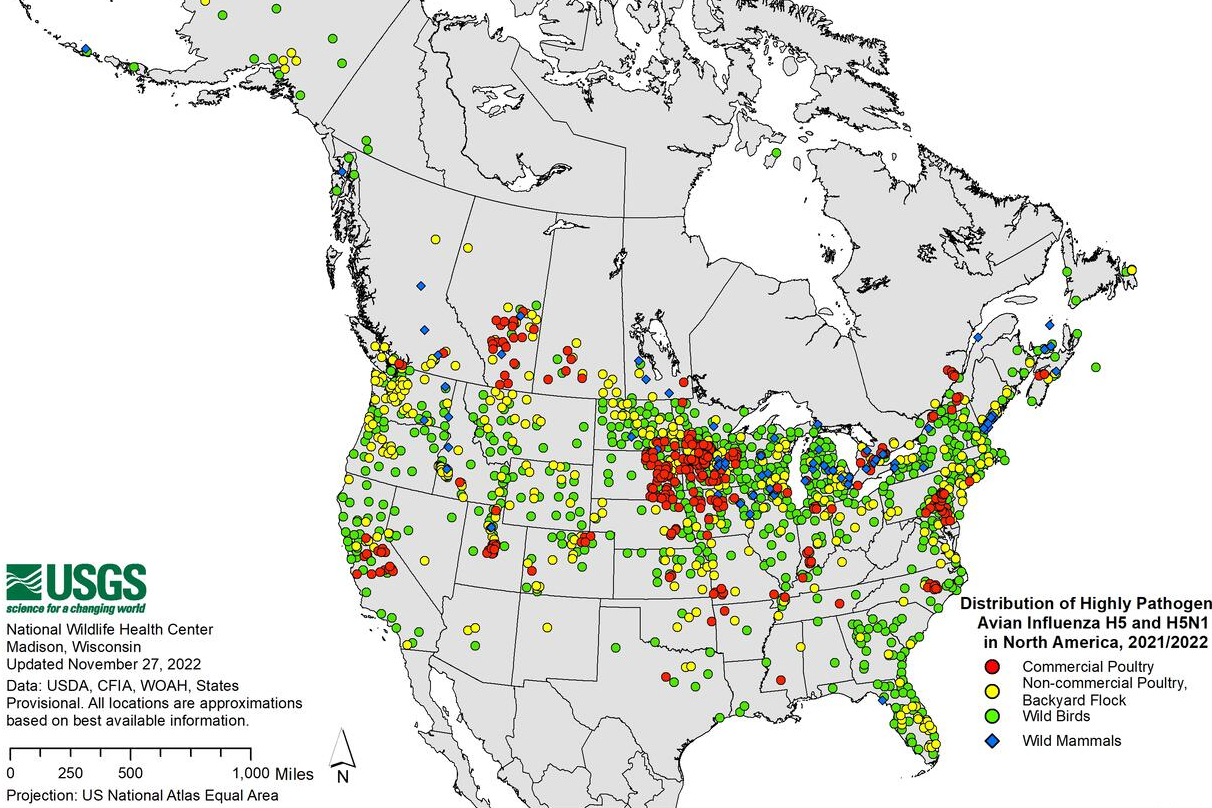
| Distribution of Highly Pathogenic Avian Influenza H5 and H5N1 in North America. Credit: USGS |
The U.S. Food and Drug Administration announced that remnants of the H5N1 avian flu virus were samples of pasteurized milk.
H5N1 can be transmitted by wild birds to domestic poultry and other bird and animal species. Although bird flu viruses do not normally infect humans, sporadic human infections have occurred.
The U.S. Department of Agriculture (USDA), the U.S. Food and Drug Administration (FDA), and the Centers for Disease Control and Prevention (CDC), along with state partners, continue to investigate an outbreak of highly pathogenic avian influenza (HPAI) virus impacting dairy cows in multiple states. Infection with the virus is causing decreased lactation, low appetite, and other symptoms in affected cattle.
The FDA and USDA have indicated that based on the information currently available, the U.S. commercial milk supply is safe because of these two reasons: 1) the pasteurization process and 2) the diversion or destruction of milk from sick cows.
Pasteurization is a process that kills harmful bacteria and viruses by heating milk to a specific temperature for a set period of time to make milk safer.
The FDA says that even if virus is detected in raw milk, pasteurization is generally expected to eliminate pathogens to a level that does not pose a risk to consumer health.
Copyright 2023-2025 FloridaWord.com